DOVER THRIFT EDITIONS GENERAL EDITOR: MARY CAROLYN WALDREP
EDITOR OF THIS VOLUME: ALISON DAURIO Copyright Copyright 2015 by Dover Publications, Inc.
All rights reserved. Theatrical Rights This Dover Thrift Edition may be used in its entirety, in adaptation, or in any other way for theatrical productions, professional and amateur, in the United States, without fee, permission, or acknowledgment. (This may not apply outside of the United States, as copyright conditions may vary.) Bibliographical Note This Dover edition, first published in 2015, contains the unabridged text of Timon of Athens as published in Volume XVIII of The Caxton Edition of the Complete Works of William Shakespeare, Caxton Publishing Company, London, n.d. The introductory Note was prepared specially for this edition, and the explanatory footnotes from the Caxton edition have been revised. International Standard Book NumbereISBN-13: 978-0-486-80076-9 Manufactured in the United States by Courier Corporation 79695701 2015 www.doverpublications.com Note WILLIAM SHAKESPEARE (1564-1616) was born in Stratford-on-Avon, Warwickshire, England. Although much of his early life remains sketchy, it is known that he moved to London around 1589 to earn his way as an actor and playwright.
He joined an acting company known as Lord Chamberlains Men in 1594, a decision that finally enabled him to share in the financial success of his plays. Only eighteen of his thirty-seven plays were published during his lifetime and these were usually sold directly to theater companies and printed in quartos, or single-play editions, without his approval. Generally considered among Shakespeares more difficult works, Timon of Athens is referred to by critics as the bards strangest tragedy. Timon is a charitable and wealthy nobleman, who has gained many friends due to his generosity and penchant for throwing lavish banquets. His steward warns him repeatedly that he is living above his means, but Timon continues to give his money away and ultimately finds himself in financial ruin.
DRAMATIS PERSON
TIMON, a noble Athenian.

VENTIDIUS, one of Timons false friends.

VENTIDIUS, one of Timons false friends.
ALCIBIADES, an Athenian captain. APEMANTUS, a churlish philosopher. FLAVIUS, steward to Timon. Poet, Painter, Jeweller, and Merchant. An old Athenian. A Fool. A Fool.
Three Strangers.  Cupid and Amazons in the mask. Other Lords, Senators, Officers, Banditti, and Attendants. SCENE: Athens, and the neighbouring woods
Cupid and Amazons in the mask. Other Lords, Senators, Officers, Banditti, and Attendants. SCENE: Athens, and the neighbouring woods
ACT I.
SCENE I. Athens. A Hall in Timons House.
Enter Poet, Painter, Jeweller, Merchant, and others, at several doors
POET.
Good day, sir. PAIN. I am glad youre well. POET. I have not seen you long: how goes the world? PAIN. POET. POET.
Ay, thats well known: But what particular rarity? what strange, Which manifold record not matches? See, Magic of bounty! all these spirits thy power Hath conjured to attend. I know the merchant. PAIN. I know them both; the others a jeweller. [10] MER. O, t is a worthy lord! JEW.
Nay, thats most fixd. [] MER. A most incomparable man, breathed, as it were, [] To an untirable and continuate goodness: [] He passes. JEW. I have a jewel here MER. O, pray, lets seet: for the Lord Timon, sir? JEW.
If he will touch the estimate: but, for that [] POET. [Reciting to himself] When we for recompense have praised the vile, It stains the glory in that happy verse Which aptly sings the good. [20] MER. [Looking on the jewel] T is a good form. JEW. [] PAIN. [] PAIN.
You are rapt, sir, in some work, some dedication To the great lord. POET. A thing slippd idly from me. Our poesy is as a gum, which oozes From whence t is nourishd: the fire i the flint Shows not till it be struck; our gentle flame Provokes itself, and, like the current, flies Each bound it chafes. What have you there? PAIN. A picture, sir.
When comes your book forth? [30] POET. Upon the heels of my presentment, sir. [] Lets see your piece. PAIN. T is a good piece. POET.
So t is: this comes off well and excellent. [] PAIN. Indifferent. [] POET. Admirable: how this grace Speaks his own standing! what a mental power This eye shoots forth! how big imagination [] Moves in this lip! to the dumbness of the gesture One might interpret. PAIN.
It is a pretty mocking of the life. [40] Here is a touch; ist good? POET. I will say of it, [] It tutors nature: artificial strife Lives in these touches, livelier than life.
Enter certain Senators, and pass over
PAIN. How this lord is followd! [] POET. The senators of Athens: happy man! PAIN.
Look, moe! POET. You see this confluence, this great flood of visitors. I have, in this rough work, shaped out a man, Whom this beneath world doth embrace and hug [] With amplest entertainment: my free drift [] Halts not particularly, but moves itself In a wide sea of wax: no levelld malice Infects one comma in the course I hold; But flies an eagle flight, bold and forth on, Leaving no tract behind. PAIN. How shall I understand you? POET. I will unbolt to you.
You see how all conditions, how all minds, As well of glib and slippery creatures as [] Of grave and austere quality, tender down Their services to Lord Timon: his large fortune, [60] Upon his good and gracious nature hanging, Subdues and properties to his love and tendance [] All sorts of hearts; yea, from the glass-faced flatterer [] To Apemantus, that few things loves better [] Than to abhor himself: even he drops down The knee before him, and returns in peace Most rich in Timons nod. PAIN. I saw them speak together. POET. Sir, I have upon a high and pleasant hill Feignd Fortune to be throned: the base o the mount Is rankd with all deserts, all kind of natures, [] That labour on the bosom of this sphere To propagate their states: amongst them all, [] Whose eyes are on this sovereign lady fixd, One do I personate of Lord Timons frame, Whom Fortune with her ivory hand wafts to her; Whose present grace to present slaves and servants Translates his rivals. [] PAIN.
T is conceived to scope. [] This throne, this Fortune, and this hill, methinks, With one man beckond from the rest below, Bowing his head against the steepy mount [80] To climb his happiness, would be well expressd [] In our condition. POET. Nay, sir, but hear me on. All those which were his fellows but of late, Some better than his value, on the moment [] Follow his strides, his lobbies fill with tendance, [] Rain sacrificial whisperings in his ear, [] Make sacred even his stirrup, and through him Drink the free air. PAIN.
Ay, marry, what of these? POET. When Fortune in her shift and change of mood Spurns down her late beloved, all his dependants [90] Which labourd after him to the mountains top Even on their knees and hands, let him slip down, Not one accompanying his declining foot. PAIN. T is common: A thousand moral paintings I can show, That shall demonstrate these quick blows of Fortunes More pregnantly than words. Yet you do well [] To show Lord Timon that mean eyes have seen [] The foot above the head. Trumpets sound.
Enter LORD TIMON, addressing himself courteously to every suitor; a Messenger from VENTIDIUS talking with him;
Next page
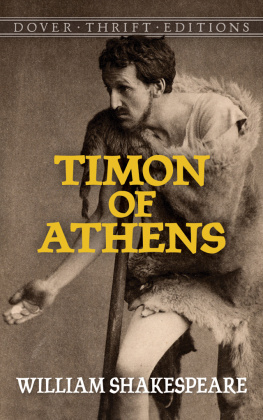
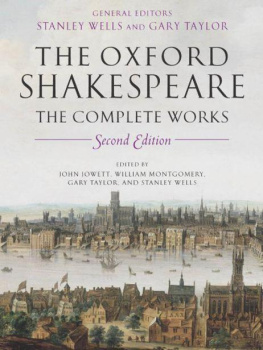

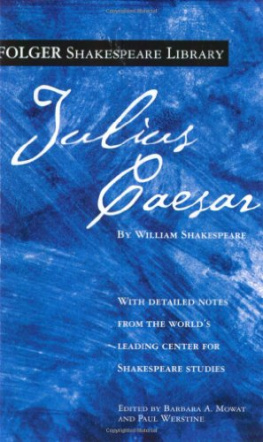
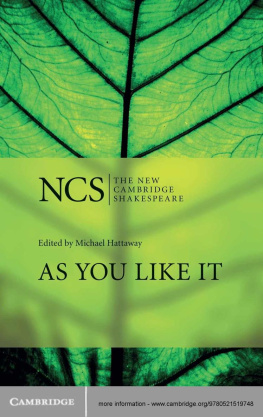
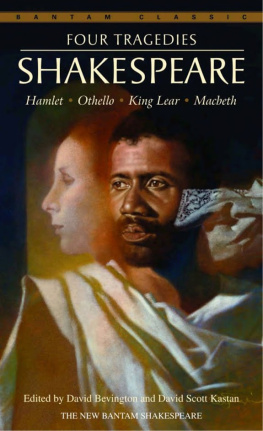
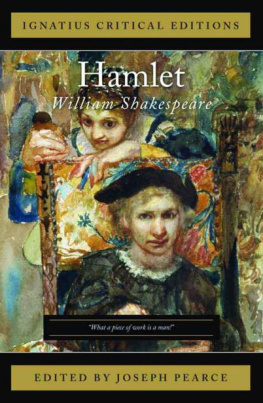
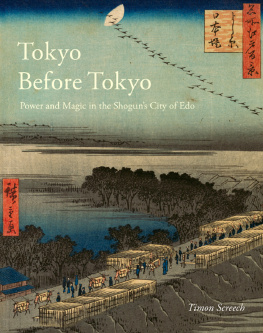

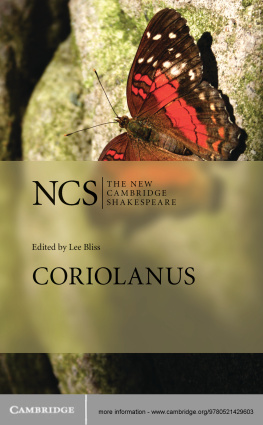

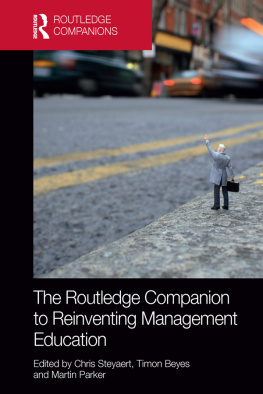
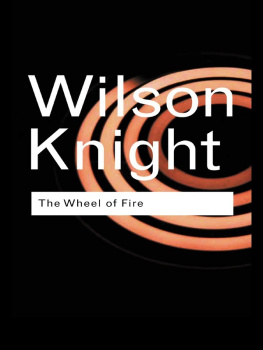

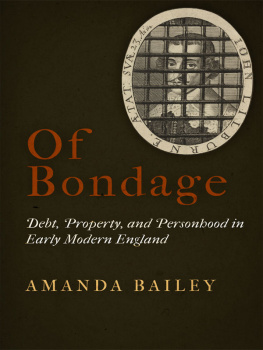
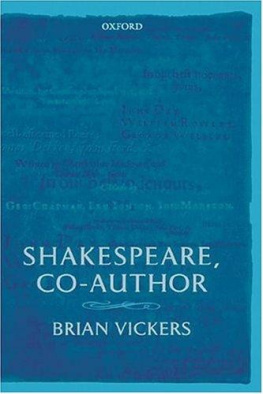
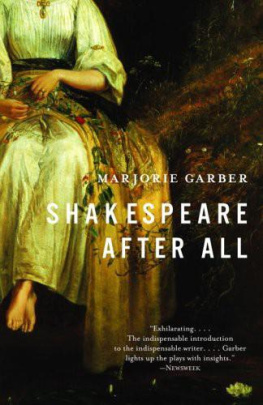
 VENTIDIUS, one of Timons false friends.
VENTIDIUS, one of Timons false friends.  Cupid and Amazons in the mask. Other Lords, Senators, Officers, Banditti, and Attendants. SCENE: Athens, and the neighbouring woods
Cupid and Amazons in the mask. Other Lords, Senators, Officers, Banditti, and Attendants. SCENE: Athens, and the neighbouring woods